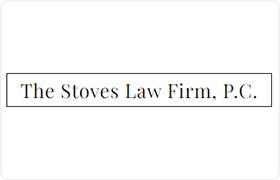Shannon RICO Act Lawyer, Alabama
Sponsored Law Firm
-
 x
x

Click For More Info:
-
The Stoves Law Firm, P.C.
9 Office Park Cir Suite 105 Birmingham, AL 35223» view mapCriminal Defense Legal Expertise You Can Rely On
The Stoves Law Firm, P.C. provides outstanding Criminal Defense and Litigation services to individuals and businesses throughout the State of Alabama.
800-818-9390
Not enough matches for Shannon RICO Act lawyer.
Below are all Shannon Criminal lawyers.
Charles Miller
✓ VERIFIEDCriminal, DUI-DWI, Misdemeanor, Felony
Charles "Trapper" Miller has been practicing since 2011representing defendants in various criminal cases, helping businesses protect themselves, and h... (more)
Julian Mardel Hendrix
✓ VERIFIEDCriminal, Divorce & Family Law, Personal Injury, Wills & Probate
Julian Hendrix is a practicing lawyer in the state of Alabama. Attorney Hendrix received his J.D. from the Birmingham School of Law.
FREE CONSULTATION
CONTACTFrank Wilson Myers
Criminal, Immigration, Felony, DUI-DWI
Status: In Good Standing Licensed: 25 Years
Irene Elizabeth Blomenkamp
Real Estate, Divorce & Family Law, Criminal, Accident & Injury
Status: In Good Standing Licensed: 26 Years
Willie Florence
Social Security -- Disability, Divorce, Criminal, Accident & Injury
Status: In Good Standing Licensed: 24 Years
Frank Wilson Myers
Workers' Compensation, Criminal, Bankruptcy & Debt, Property Damage
Status: In Good Standing Licensed: 39 Years
Yusuf Salim Olufemi
Estate, Divorce & Family Law, Criminal, Bankruptcy & Debt
Status: In Good Standing Licensed: 37 Years
 Jay Stoves Birmingham, AL
Jay Stoves Birmingham, AL Practice AreasExpertise
Practice AreasExpertise


